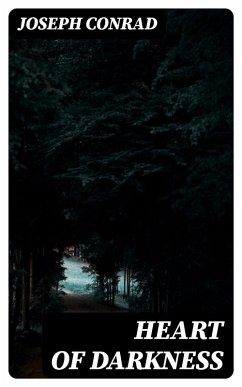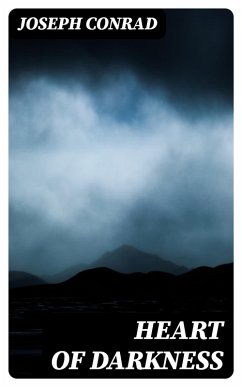
Heart of Darkness (British Classics Series) (eBook, ePUB)
Including Author's Memoirs, Letters & Critical Essays

PAYBACK Punkte
0 °P sammeln!
In Joseph Conrad's seminal novella, "Heart of Darkness," readers embark on a profound exploration of imperialism, civilization versus savagery, and the complexities of human nature. Set against the backdrop of late 19th-century Africa, the narrative follows Charles Marlow's journey up the Congo River to meet the enigmatic Kurtz, a ivory trader whose moral decay embodies the darkness that lurks within humanity. Conrad's modernist prose is rich with symbolism, employing impressionistic descriptions that evoke the oppressive atmosphere of colonial exploitation and the psychological turmoil of his...
In Joseph Conrad's seminal novella, "Heart of Darkness," readers embark on a profound exploration of imperialism, civilization versus savagery, and the complexities of human nature. Set against the backdrop of late 19th-century Africa, the narrative follows Charles Marlow's journey up the Congo River to meet the enigmatic Kurtz, a ivory trader whose moral decay embodies the darkness that lurks within humanity. Conrad's modernist prose is rich with symbolism, employing impressionistic descriptions that evoke the oppressive atmosphere of colonial exploitation and the psychological turmoil of his characters, thus establishing a critical lens on European imperialism while delving into existential themes. Joseph Conrad, a Polish-born writer who became a British citizen, draws upon his personal experiences as a sailor and traveler in the Congo River basin, providing a vivid, firsthand perspective on the intricacies of colonialism and its dehumanizing effects. This duality of identity-straddling cultures and languages-shapes the thematic depth of his work, as Conrad grapples with his own position between civilization and barbarism, mirroring Marlow's transformative voyage into the heart of darkness. "Heart of Darkness" is essential reading for those seeking to understand the intricate dynamics of power and morality within the context of colonialism. Its rich allegorical narrative and psychological insights resonate profoundly in today's world, making it a timeless piece that invites reflection on humanity's perpetual struggle with its own dark impulses.
Dieser Download kann aus rechtlichen Gründen nur mit Rechnungsadresse in A, B, BG, CY, CZ, D, DK, EW, E, FIN, F, GR, H, IRL, I, LT, L, LR, M, NL, PL, P, R, S, SLO, SK ausgeliefert werden.














